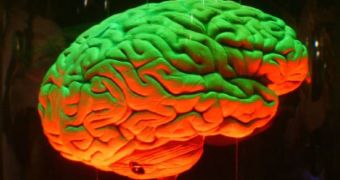According to a new scientific study, seniors who are in the habit of thinking that their memory will deteriorate with age are actually very likely to go through this. Researchers have determined the fact that only thinking about having a diminished memory can be sufficient enough of a reason for some elderly people to score lower in tests than the ones who have never asked themselves this kind of questions. Experts at the North Carolina State University (NC State), who have been in charge of the new research, advise individuals to forget stereotypes and to simply enjoy their lives.
The researchers also say that a senior's ability to remember something is heavily influenced by the activation or inactivation of negative stereotypes. For example, if during the experiments participants thought they were “stigmatized,” as in looked down on on account of their age, they would then perform much more poorly than others. “For example, older adults will perform more poorly on a memory test if they are told that older folks do poorly on that particular type of memory test,” Dr. Tom Hess, who is a professor of psychology at NC State, explains.
“Such situations may be a part of older adults' everyday experience, such as being concerned about what others think of them at work having a negative effect on their performance – and thus potentially reinforcing the negative stereotypes. The positive flip side of this is that those who do not feel stigmatized, or those in situations where more positive views of aging are activated, exhibit significantly higher levels of memory performance,” Hess adds.
The conclusion of the research may not seem like a very scientific one – don't worry about it, and it won't happen to you. And Hess points out that the negative effects are mostly felt by very well educated individuals. “We interpret this as being consistent with the idea that those who value their ability to remember things most are the most likely to be sensitive to the negative implications of stereotypes, and thus are most likely to exhibit the problems associated with the stereotype,” he stresses.
The study has also revealed that those between 60 and 70 years were most likely to suffer more when the stereotypes were activated, as opposed to those in the 71-to-80-year-old group, whereas the latter group was more likely to perform worse in the actual tests. “The take-home message is that social factors may have a negative effect on older adults' memory performance,” Hess concludes.

 14 DAY TRIAL //
14 DAY TRIAL //